Suspended Beam Apparatus
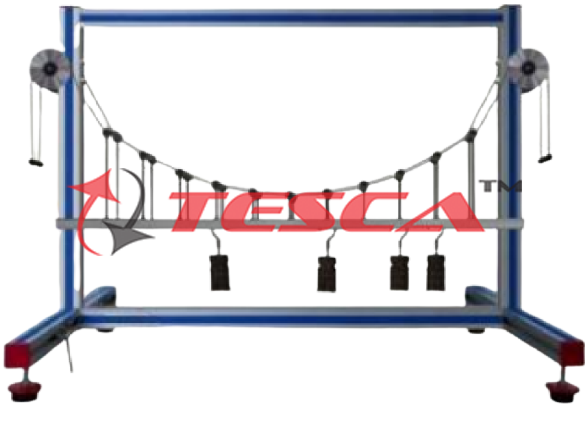
Order Code: 32153
Category: Strength of Materials Lab
Tesca Suspended Beam Apparatus is intended to represent a simple application of a suspended beam and may be used to determine experimentally the tension in the cables supporting a beam carrying a series of distributed loads. Tesca Suspended Be...
SPECIFICATION
Tesca Suspended Beam Apparatus is intended to represent a simple application of a suspended beam and may be used to determine experimentally the tension in the cables supporting a beam carrying a series of distributed loads.
Tesca Suspended Beam Apparatus is a visual realistic suspension bridge that allows to compare experimental and theoretical cable tensions and to study the performance of the suspension bridge under different load conditions.
This unit has been designed to represent a simple application of a suspended beam and it can be used to determine experimentally the tension in the cables supporting a beam carrying a series of distributed loads
A light alloy BEAM is supported on the rods attached at pivot points to cross members threaded on the supporting cables which pass over ball bearing pulleys.
Tension in the supporting cables is determined by attaching suitable masses to the cable stirrups. Loads may be applied to the beam by attaching masses at a series of loading points and indicators enable the beam to be returned to a position for the ‘true shape’ of the supporting cables.
Specifications
Suspension bridge
Span: approx. 1050mm
Supporting cable sag: approx. 325mm
Number of supporting cables: 2
Shackles: 12, graduated lengths
Dead-weight of roadway: 6N
Support force measuring range: -50...+50N
Weight set
- 4x 1N (hangers),
- 16x 1N
- 16x 5N
1 suspension bridge, consisting of 2 supporting cables,
12 shackles, 1 roadway
2 deflection roller with fixture
2 supports with a force gauge
4 sets of weights
1 storage system
1 set of instructional material
Experiments
Demonstration of the characteristics of a simple suspension bridge.
Determination of the experimental tension in the supporting cables.
Observation of the stability of the structure.
Examination of the relationship between applied loads and the suspension cable tension.
To determine the experimental value of the tension in the supporting cables of a suspended beam subjected to a uniformly distributed load.
Comparison of theoretical and experimental results.

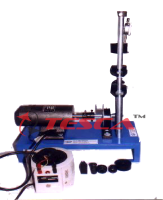
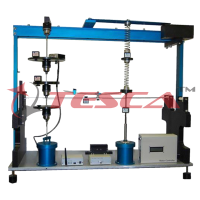
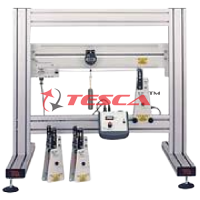
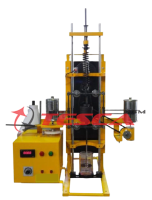
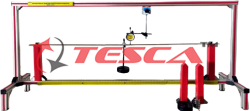
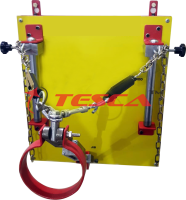

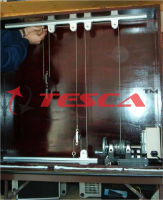


 91-9829132777
91-9829132777